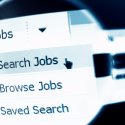Posted January 22nd, 2020
By Kris Powers
Medical transcriptionists are responsible for listening to recordings left by physicians and other healthcare professionals and turning that information into written medical records. According to the Bureau of Labor Statistics, they:
- Listen to the recorded dictation of a doctor or other healthcare worker
- Interpret and transcribe the dictation into patient history, exam notes, operative reports, referral letters, discharge summaries, and other documents
- Review and edit drafts prepared by speech recognition software, making sure that the transcription is correct, complete, and consistent in style
- Translate medical abbreviations and jargon into the appropriate long form
- Identify inconsistencies, errors, and missing information within a report that could compromise patient care
- Follow up with the healthcare provider to ensure that reports are accurate
- Submit health records for physicians to approve
- Follow patient confidentiality guidelines and legal documentation requirements
- Enter medical reports into electronic health records (EHR) systems
- Perform quality improvement audits
Medical transcriptionists work in hospitals, doctor’s offices, administrative offices and some may work from home. Medical transcription requires a quick turn-around time to ensure that medical records are being completed quickly and accurately. Getting the physician’s dictation into the electronic medical record quickly is crucial as it can affect patient care. Medical transcriptionists that work from home will have some flexibility in their hours worked. There will be weekend and evening hours available in most cases.
Medical transcription takes a certain skill set to complete. The Bureau of Labor Statistics lists the following as important qualities:
- Computer skills- must be comfortable working with computers and word-processing. They will most likely need to know how to operate the electronic health record system as well.
- Critical Thinking- they must be able to spot any inaccuracies and inconsistencies in finished drafts of dictation notes. They must be able to critically think and do research to find the information they need to ensure that sources are accurate and reliable.
- Listening skills- they are often listening to the dictation on a phone or other recording device and they must listen closely to ensure that their transcription is accurate.
- Time management- they must be comfortable working under tight deadlines because dictation must be completed quickly.
- Writing skills and typing skills- medical transcriptionists must have a good understanding of the English language and grammar. They must also have proficient typing skills as almost all medical records are now kept electronically.
While full dictation is still needed, most medical facilities are using more voice recognition software. Medical transcriptionists are able to listen to the recording and correct any mistakes that are present from the voice recognition. This is allowing medical transcriptionists to complete more tasks more quickly as they are not transcribing a complete note. If you enjoy the medical field but aren’t sure you want to do direct patient care, this may be the career for you! Check out our medical transcription program today!
Ed4Career offers multiple health care courses including the Medical Transcription Associate Program. This course bundle includes our Medical Terminology and Medical Transcription courses. Upon successful completion of our Medical Transcription course, students will be prepared for an entry-level position doing medical transcription and will be prepared to sit for the AHDI national certification exam to become a Registered Healthcare Documentation Specialist (RHDS).





